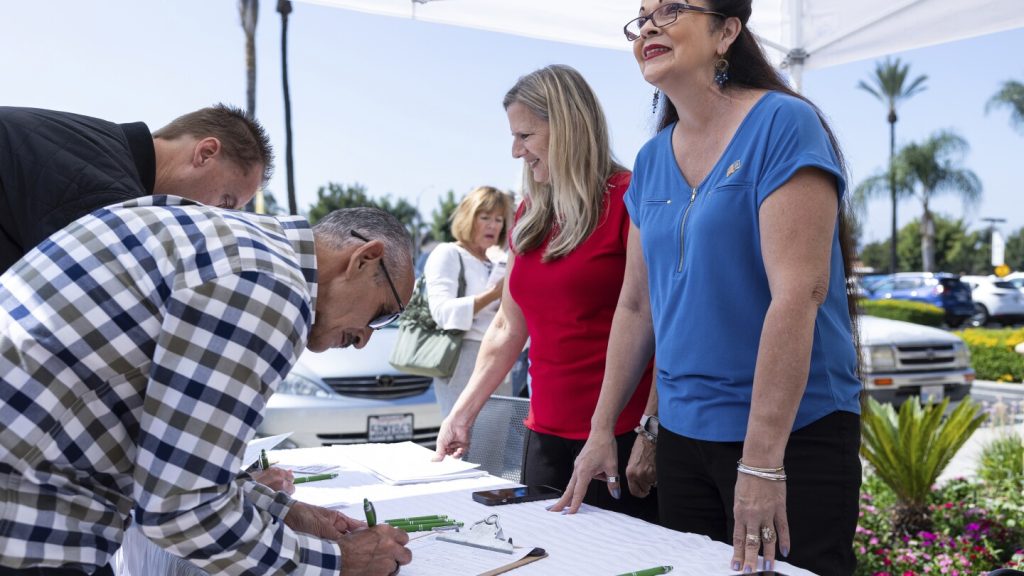In Menifee, California, church members are encouraging congregants to register to vote and participate in the upcoming election by using a practice known as ballot gathering. This controversial strategy has been embraced by conservative voters, including evangelical Christians, who have historically been skeptical of mail voting and ballot collection, often associated with Democrats like in California. Despite concerns about fraud, conservative figures like Charlie Kirk and Lara Trump are now advocating for Christians to collect ballots to increase voter turnout and support candidates aligned with their views on issues like abortion and immigration.
While some conservatives still believe that ballot harvesting and universal mail-in voting present opportunities for fraud, they recognize the need to adapt to the changing political landscape. In states like California where there is no limit on how many ballots a single person can collect, churches like Calvary Chapel Chino Hills are training volunteers to gather ballots. This initiative aims to engage voters and potentially influence the outcome of elections by flipping school boards and advocating for laws that align with conservative values.
The practice of ballot gathering, where individuals return mail-in ballots on behalf of voters, is legal in 35 states, including California. Training programs like the one led by Gina Gleason of Real Impact at Calvary Chapel Chino Hills have seen success in collecting thousands of ballots in recent elections, with the goal of empowering conservative Christians to make a difference in their communities. By ensuring ballots are filled out correctly and turned in promptly, churches hope to maximize their impact on the electoral process.
Conservative groups are hopeful that similar ballot gathering initiatives will spread to other states, with the Faith & Freedom Coalition noting increased interest from churches in competitive states like Nevada and Virginia. The use of churches as collection points for ballots is seen as a natural choice due to their regular congregational gatherings and established trust within their communities. While critics have raised concerns about potential tampering or coercion, proponents believe that churches uphold a higher level of integrity and accountability in carrying out this practice.
Despite initial skepticism from some conservatives and concerns about fraud, ballot gathering has gained traction as a legitimate strategy to increase voter participation, especially in communities of color where access to the ballot box may be limited. Progressive groups and leaders, including the National Hispanic Christian Leadership Conference and the Orange County Democratic Party, have expressed support for ballot gathering efforts, highlighting the importance of ensuring all voices are heard in the democratic process. As the election approaches, churches and volunteers continue to mobilize to collect ballots and make a difference in their communities.


